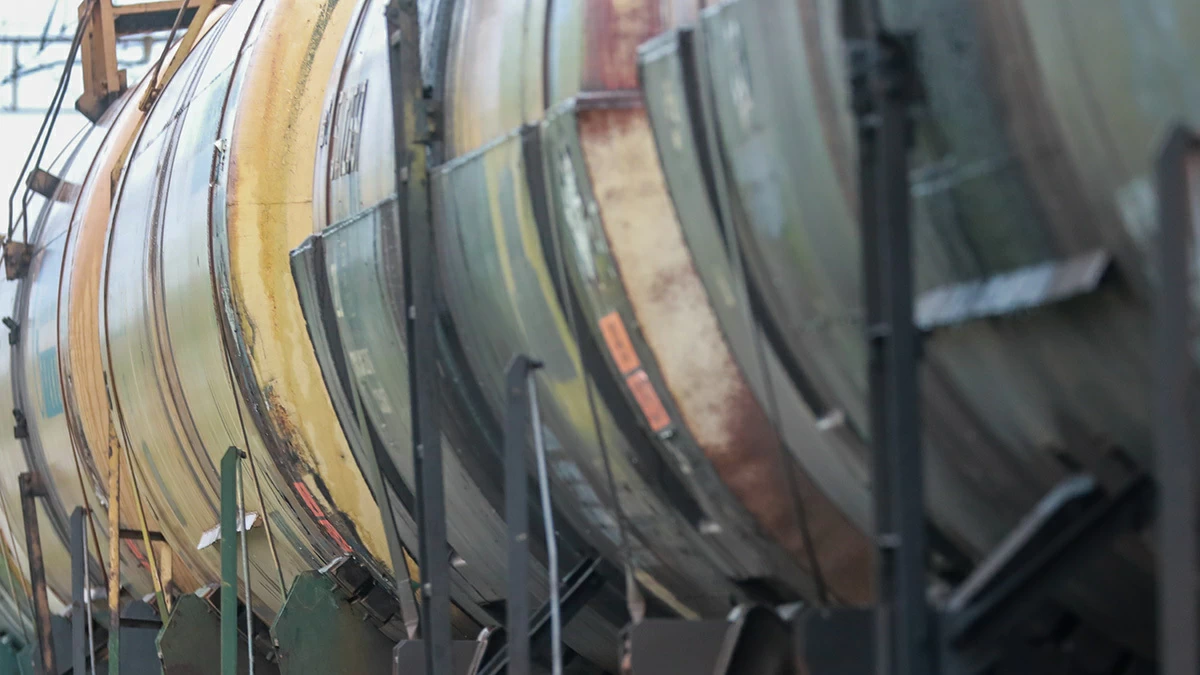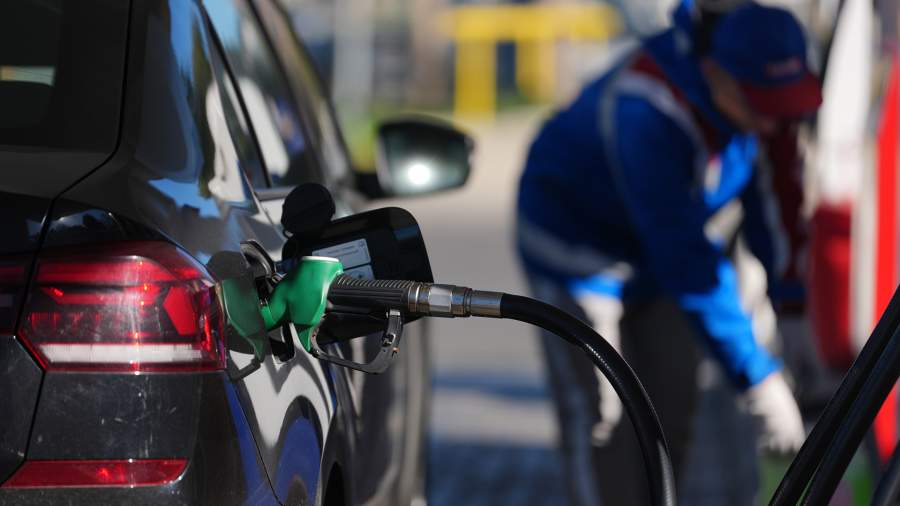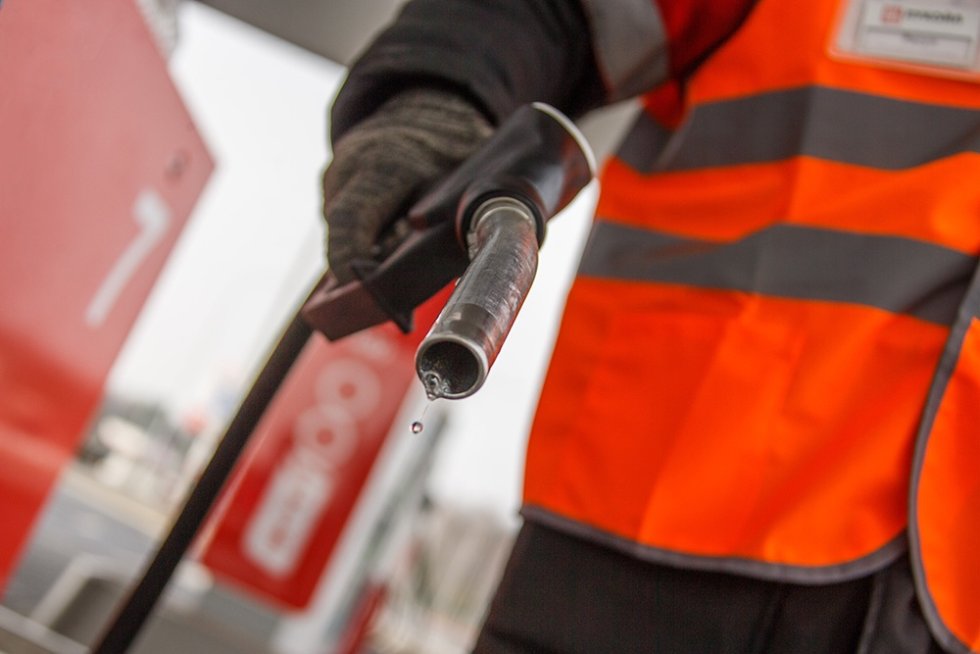**Network inspections amid rising fuel prices**
The Ministry of Energy and regional offices of the Federal Antimonopoly Service (FAS) have started sending requests to petrol station owners, demanding justification for the increase in fuel prices. The agencies are also requesting information on fuel stock levels and instances of supply disruptions. Members of the market have informed Izvestia about this. The editorial team has also reviewed two such letters.
— Regional authorities (FAS and the Ministry of Energy — Ed.) have repeatedly approached representatives of petrol station networks in recent weeks for justifications regarding the rise in fuel prices or information about their stock levels, — stated Pavel Bazhenov, President of the Independent Fuel Union (NTS), to Izvestia.
By order of the FAS, territorial agencies conduct oversight over compliance with antimonopoly legislation in the fuel market, including through requests for data on pricing and fuel availability from petrol station networks, confirmed the press service of the agency to Izvestia.
Decisions regarding the presence or absence of signs of violations of antimonopoly legislation are made based on an analysis of the provided information, they clarified. For example, warnings have been issued to petrol station owners in the Tver and Tyumen regions, added the FAS.
If the FAS considers the price increases economically unjustified, network owners face administrative fines, orders to reduce prices, and even suspension of operations in cases of systematic violations, noted Vladimir Chernov, an analyst at Freedom Finance Global. In the most serious instances, the initiation of antimonopoly proceedings could be considered if it is proven that the price increases were collusive or artificial in nature, he added.
— The regulators' actions are understandable in a situation where certain petrol stations are forced to stop or limit petrol dispensing, or shut down due to fuel shortages. Some petrol stations indeed have to raise prices above inflation due to market difficulties and rising wholesale prices. Not all fuel market operators have the buffer to maintain prices and operate at a loss, — Pavel Bazhenov told Izvestia.
As of late summer, only small networks were experiencing difficulties with fuel supplies, but now even major systemic operators with dozens of petrol stations are facing complications, he added. Regions such as Kirov, Nizhny Novgorod, and Kostroma, where even such companies are struggling, were cited as examples by the expert.
Izvestia has sent inquiries to the Ministry of Energy, oil companies, and petrol station networks.
What measures are being taken by the authorities
Authorities are striving to prevent the retail price of petrol from rising above inflation rates on a yearly basis or to keep these indicators close, as reported by Izvestia. This mechanism is implemented through the pressure of regulators, primarily the FAS, on oil companies. Such a system forces retail networks to hedge against the risk of losses arising from inevitable disparities. Therefore, prices are not lowered even when there are all the prerequisites for doing so, NTS representatives explained.
— While large companies can afford to sell fuel at a loss for some time, offsetting losses through other activities (as well as by selling related goods and providing services at petrol stations), smaller operators are entirely tied to wholesale prices and cannot "drop" below their level. Consequently, they raise prices at their petrol stations faster than inflation rises, — noted Valery Andrianov, Associate Professor at the Financial University under the Government.
Since early September, the wholesale price of fuel has reached a historical high. Following trading on 3 September, the price of AI-95 (petrol) for delivery to the European part of Russia reached a record 82,300 rubles per tonne, while AI-92 (petrol) exceeded 70,600 rubles. As of 29 September, the price of AI-95 fell to 78,900 rubles per tonne, while the price of AI-92 rose to 74,000 rubles respectively, according to data from the St. Petersburg Exchange.
Those petrol stations that maintained price increases within the anticipated inflation in September retained negative profit margins, noted Pavel Bazhenov from the NTS. On average across the country, the loss amounts to approximately four rubles per litre for both AI-92 and AI-95 petrol, he added. Meanwhile, some non-network petrol stations in the regions increased prices by about 10%, or by 5-8 rubles above the set prices of network providers, according to media reports in September. Instances of such cases were noted in the Tambov, Tver, and Lipetsk regions.
The situation in the fuel market
Russia has previously faced similar issues, noted Dmitry Tortev, a member of the expert council of the State Duma's committee on competition protection. This year, experts have reported that key reasons for the crisis include increased domestic demand during the agricultural harvest season and holiday periods, as well as planned and emergency repairs at oil refineries.
In 2023, the export ban was introduced at the end of September and lifted in mid-November. At that time, the Ministry of Energy noted that a surplus of fuel had been created in the domestic market over those two months, and the wholesale market price of petrol had significantly decreased. In 2024, the ban was introduced in March, originally intended for six months. However, as the domestic market became saturated with automotive fuel from 20 May, the authorities suspended this restriction. The easing lasted until the end of July, but was lifted in August as petrol consumption in Russia began to rise faster than expected, resulting in a sharp increase in wholesale prices and an extension of the ban until the end of the year.
— The current situation in the fuel market has been caused by a number of factors, and it is evident that the government is preparing new measures. In the medium term, regulators may begin discussions regarding a system of export restrictions as a standing measure—e.g., in cases where prices at petrol stations exceed inflation, — suggested Dmitry Tortev.
Previously, Deputy Prime Minister Alexander Novak held a meeting with representatives of the largest oil companies. He received reports from them regarding the established situation, sources in the industry disclosed to Izvestia. They stated that the outcome of the meeting was Novak's announcement that a decision on the future of the domestic fuel market would be made by the "political leadership of the country." Days later, it became known that the government intends to implement a complete ban on petrol exports for all participants, except for deliveries under intergovernmental agreements until the end of the year. A ban on the export of diesel fuel for non-producers will also be instituted until the end of the year. Currently, the ban is effective until 30 September, so a new regulation should be published in the coming days.
Everyone understands that the decision to ban petrol and diesel exports is a forced one, noted Yuri Stankevich, Deputy Chairman of the State Duma Committee on Energy.
— Directive supply restrictions abroad under sanctions will increase pressure on the financial performance of the oil sector. According to projections, the profits of our major oil companies (VINK) for the year will be half of what they were in the previous period, — noted the deputy.
In this instance, unscheduled repairs at oil refineries have led to risks of petrol shortages in the domestic market, commented Sergey Tereshin, General Director of Open Oil Market. As a result, whereas before, the export ban merely indicated the need to "hold back" price increases, it is now being used to fill the domestic market.
However, the expert believes that the export ban will not resolve the issue. The fact is that the market has historically maintained a capacity surplus of no more than 15% (compared to 50% in the diesel market) even in normal times, which means that saturating the domestic market will also require importing, he suggests. This could involve supplies from Belarusian oil refineries that have encountered a capacity surplus following the loss of the European market.
In the short term, it is essential to stabilise the wholesale market by increasing supplies to the domestic market and expanding fuel sales through exchanges, noted Vladimir Chernov. A temporary reduction in excise taxes or mechanisms for subsidising independent petrol stations, which are most vulnerable to price fluctuations, should also be considered, he believes.
In the medium term, it is important to establish long-term direct contracts between oil refineries and networks, as well as to create additional fuel reserves to smooth out local disruptions and strengthen the protection of petrol stations, concluded the specialist.
Source: Izvestia




